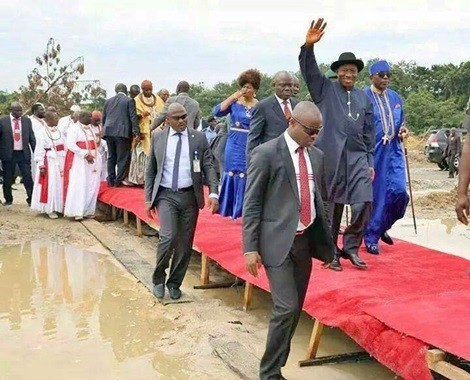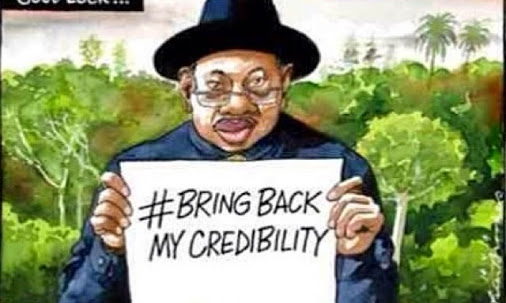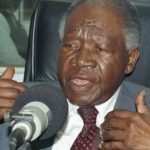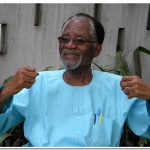Goodluck Jonathan bows out in a puff of ignominy
Posted by By Akogun Akomolafe at 4 July, at 13 : 58 PM Print
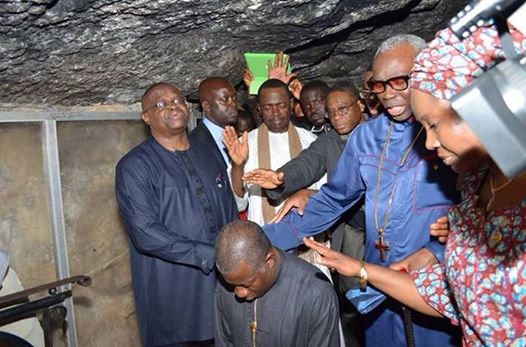
Warning: count(): Parameter must be an array or an object that implements Countable in /home/alaye/public_html/wp-content/themes/Video/single_blog.php on line 56
Never in the history of Nigeria had citizens welcomed a leader with the same affection and goodwill they bestowed on ex-president Goodluck Jonathan. And never had they cursed a departing leader as loudly as they did when he bowed out on May 29, 2015.
Many of them danced with joy when on 29 May 2011, after an election that cost US$585 million and claimed about 500 lives in post-election violence, especially in the northern part of the country, President Goodluck Ebele Jonathan (GEJ), the man with the apparent golden touch, was sworn in as Nigeria’s 14th head of state.
The man who claimed to belong to the masses and said that he had no shoes to wear to school commenced his four-year term mandate with a promise to Nigerians: “Your days of lamentation are over; this is the era of transformation.”
In his inaugural address, he told Nigerians: “We know your pains because I have been there; I look beyond the hardship that you have endured and see a new beginning, a new direction, a new spirit.”
Obviously aware of deep-seated skepticism of his compatriots whose hopes and aspirations have been dashed by previous broken promises by leaders, My Jonathan advised against cynicism, and counseled them to have faith in him as he was one of them. He said, “Cynicism and skepticism would not help our journey to greatness, let us all believe in a new Nigeria, let us work together to build a great country we would all be proud of, this is our power.”
Although not the most charming public speaker, Mr. Jonathan strives not to disappoint those that came to watch his N1.5billion investiture. He made the right noises as he spoke about transforming the whole gamut of the Nigerian society. Sample:
I know your pain, because I have been there. Look beyond the hardship you have endured. See a new beginning; a new direction; a new spirit.
Nigerians, I want you to start to dream again. What you see in your dreams, we can achieve together.
Let us work together; let us build together; let us bequeath a greater Nigeria to the generations to come.
It is difficult to imagine what led the man that made so many promises to lead what is undoubtedly the worst regime in the nation’s history. Was the man simply incompetent or was he a malevolent charlatan and supreme cynic?
It is too early for historians to do serious post-mortem, but it is impossible to know what caused Mr. Jonathan not to choose to lead and shine and opted instead to lead a government characterized largely by ineptitude, incompetence and vast corruption on scales never seen before.
The man whose career was streaked by series of lucky chances made his exit in a puff of ignominy. Many superstitious Nigerians read meaning into his middle name, Ebele, which in the Igbo language means ‘God’s Wish,’ and concluded that the gods have decided to punish their country.
With the exception of agriculture which registered some gains, it is difficult to score Mr. Jonathan high in any other sector.
Security: The primary function of a government is to be the guarantor of citizens’ security. On this score, Mr. Jonathan failed woefully. To be fair, the menace of Boko Haram preceded his rule, but it is very difficult to know what motivated him not to take the threat seriously and tackle it with more vigor. It was not until few weeks before the elections that ousted him that Mr. Jonathan appeared to wake up from a deep slumber and decided to fight back.
Ok, Goodluck Jonathan was not a military man, but it shouldn’t take a soldier to recognize a clear and present danger like the one posed by the Boko Haram insurgency. Mr. Jonathan not only appeared callous and aloof, but also insensitive to the anguish of his citizens. Nigerians watched in horror as Boko Haram seized and hold territories and declared an Islamic Caliphate in a section of the country. Citizens were petrified to see their once-vaunted army that had seen UN Peace-Keeping functions in almost every part of the world, reduced to nothingness in the face of insurgency. And President Jonathan appeared like a man totally out of his depth. And worse, Nigeria’s Chief Executie looked to his compatriots like a man that cannot relate to their plight. A day after a devastating bomb attack in his nation’s capital, the president was shown dancing at his nomination. Again, for over two weeks, the president refused to make a statement on the 200 school girls that were abducted at Chibok. His garrulous wife added to the confusion when he went on to lambast those she believed were lying about the abductions.
Looming elections appeared to galvanize the president to come out of his stupor. Suddenly, the army was kitted with new equipment and, finally Boko Haram insurgents were put on the run. And military campaigns were better coordinated with the neighboring countries of Chad, Cameroon and Niger. Today, the army has regained the initiative and liberated almost all the land conquered by Boko Haram. Nigerians wondered what took their president so long so stop the rebellion.
Corruption: Nigeria has long been known as a most corrupt nation, but the regime of Goodluck Jonathan appeared to have taken the cup at the sheer effrontery at which the national treasury was looted with abandon. Among the numerous gaffes for which Goodluck Jonathan was pilloried was the one where he said that corruption is different from stealing. Under his watch, there were no serious attempt to fight corruption. To crown it all, Mr. Jonathan deemed it fit to award a national honour to the one military dictator Nigerians believed embodied the malaise of corruption, Sanni Abacha. In a move that left many citizens baffled, Goodluck Jonathan lumped Abacha together with some of the most illustrious citizens the nation ever produced – Wole Soyinka, Gani Fawehinmi, Fela Anikulapo-Kuti. Little wonder Nobel Laureate Wole Soyinka was acerbic in his rejection: “Such abandonment of moral rigour comes full circle sooner or later. The survivors of a plague known as Boko Haram, students in a place of enlightenment and moral instruction, are taken to a place of healing dedicated to an individual contagion – a murderer and thief of no redeeming quality known as Sani Abacha, one whose plunder is still being pursued all over the world and recovered piecemeal by international consortiums – at the behest of this same government which sees fit to place him on the nation’s Roll of Honour! I can think of nothing more grotesque and derisive of the lifetime struggle of several on this list, and their selfless services to humanity. It all fits. In this nation of portent readers, the coincidence should not be too difficult to decipher.”
Foreign policy: For reasons that are very difficult to understand, Mr. Jonathan shifted the country’s foreign policy from its traditional solidly Africa-Centred and robustly Pan-Africanist orbit into an trajectory that is decidedly pro-Western and, one may argue, anti-Africa.
Nigerians were dismayed when Nigeria, together with South Africa voted with the West to destroy Libya. Muammer Ghadaffi was not the most likeable of human beings, but joining external forces to destroy another African country was not something that please many Nigerians.
Foreign policy was one area that Nigeria used to hold uncontested leadership position in Africa. It was in this area that the country rightly claimed to be the ‘Giant of Africa.’
Nigeria led Africa’s liberation struggle in the southern part of the country. The country was instrumental in thwarting America’s effort to impose Savimbi on Angola. So much was the country respected in those days that it was made a member of the Frontline States even though it was geographically very far away.
What baffles greatly was that Mr. Jonathan appeared not to understand International Relations 101 whereby horse trading is the order of the day. He appeared to give away everything to the West without getting anything in return. The West even refused to sell him the weapons to fight the Boko Haram insurgency. He was forced to turn to the Russians.
It is difficult to understand what motivated Mr. Jonathan to want to end his rule in ignominy. But his last days were marred by an acute shortage of almost everything. Electricity generation dwindled to about 800Mw for a country of over 160 million people. That is despite a solid pledge by Mr. Jonathan to focus on tackling the power problem that has plagued the nation since the dawn of history. If Nigerians can understand the paucity of electricity, they were bewildered when suddenly they no longer can get petrol or diesel to buy. Nigeria’s is Africa’s largest producer of crude oil. The nation has four refineries. Yet, citizens spent days at petrol stations looking for petrol. It later emerged that importers of refined petroleum products are attempting to squeeze the last drop of profit from the outgoing government.
By some strange arrangement, successive governments allowed the nation’s four refineries to run down, they then award their cronies juicy contracts to import refined petrol products. The prices of the imported products are far higher that what would have obtained from the local refineries, so the government sell the products to Nigerians at local rates and cushion the difference. It was a juicy arrangement that has made many well-connected people stupendously rich and has almost cripple the treasury. Incoming present president has promised to stop the huge scam and find ways to save the nation from the extortionists.
Power is a powerful aphrodisiac, as Henry Kissinger told us, but history teaches that it is also very transient. Few will ever be as lucky as Goodluck Jonathan who started with nothing. From a very humble beginning, he rose to become the president of his nation. It is an experience few mortals will ever live. Presented with such once-in-millennium opportunity, a wiser person would have elected to write his name in pure gold. Instead the man from Otuoke in Bayelsa State, decided to surround himself with the most rapacious of Nigeria’s otiose elite, and reduced his country to the butt of international joke. He leave behind a nation that is totally bankrupt economically and financially and divided along religious and tribal faults. Goodluck Jonathan chose to forget that few things in life last forever. He forgot the admonition that a good name is better than all the world’s riches.
Yesterday, Goodluck Jonathan was the almighty Executive President of the Federal Republic of Nigeria and Commander in Chief of the Nigerian Armed Forces, today he is an ordinary Nigerian. He will be called upon to account for his tenure. Few of those that led him astray with remain loyal to him. His compatriots will laugh him to scorn as the most incompetent misruler ever to preside over the affairs of their country. He shall have enough time to gnash his teeth and ruminate over what he could have done better, but then it is too late.
About the Author
Femi Akomolafe is a passionate Pan-Africanist. A columnist for the Accra-based Daily Dispatch newspaper and Correspondent for the New African magazine. Femi lives in both Europe and Africa, and writes regularly on Africa-related issues for various newspapers and magazines.
Femi was the producer of the FOCUS ON AFRICANS TV Interview programme for the MultiTV Station.
He is also the CEO of Alaye Dot Biz Limited Dot Biz, a Kasoa-based Multimedia organisation that specialises in Audio and Video Production. He loves to shoot and edit video documentaries.
His highly-acclaimed books (“Africa: Destroyed by the gods,” “Africa: It shall be well,” “18 African Fables & Moonlight Stories” and “Ghana: Basic Facts + More”) are now available for sales at the following bookshops/offices:
- Freedom Bookshop, near Apollo Theatre, Accra.
- The Daily Dispatch Office, Labone – Accra
- WEB Dubois Pan-African Centre, Accra
- Ghana Writers Association office, PAWA House, Roman Ridge, Accra.
- African Kitchen in Amsterdam Bijlmer
Where to buy them online:
On Lulu Books:
18 African Fables & Moonlight Stories https://goo.gl/Skohtn
Ghana: Basic Facts + More: https://goo.gl/73ni99
Africa: Destroyed by the gods: https://goo.gl/HHmFfr
Africa: It shall be well: https://goo.gl/KIMcIm
Africa: it shall be well
on Kindle books: https://www.createspace.com/4820404
on Amazon books: http://goo.gl/QeFxbl
on Lulu Books: https://goo.gl/SQeoKD
Africa: Destroyed by the gods
on Kindle books: https://www.createspace.com/4811974
on Amazon books: http://goo.gl/1z97ND
on Lulu Books: http://goo.gl/KIMcIm
My Lulu Books page: http://www.lulu.com/spotlight/FemiAkomolafe
Get free promotional materials here:
- Africa: it shall be well: http://alaye.biz/africa-it-shall-be-well-introduction-in-pdf/
A FREE Chapter of ‘Africa: It shall be well’ could be downloaded here: http://alaye.biz/africa-it-shall-be-well-a-free-chapter/
- Africa: Destroyed by the gods (How religiosity destroyed Africa) http://alaye.biz/africa-destroyed-by-the-gods-introduction/
A FREE Chapter of ‘Africa: Destroyed by the gods’ could be downloaded here: http://alaye.biz/africa-destroyed-by-the-gods-free-chapter/
Contact Femi:
Femi’s Blog: www.alaye.biz/category/blog
Website: www.alaye.biz
Femi on Amazon https://www.amazon.com/author/femiakomolafe
Twitter: www.twitter.com/ekitiparapo
Facebook:https://www.facebook.com/alayeclearsound;
Gmail+: https://plus.google.com/112798710915807967908;
LinkedIn: www.linkedin.com/in/femiakomolafe
Email: fakomolafe@gmail.com
Kindly help me share the books’ links with your friends and, grin, please purchase your copies.
Comradely,
Femi Akomolafe

